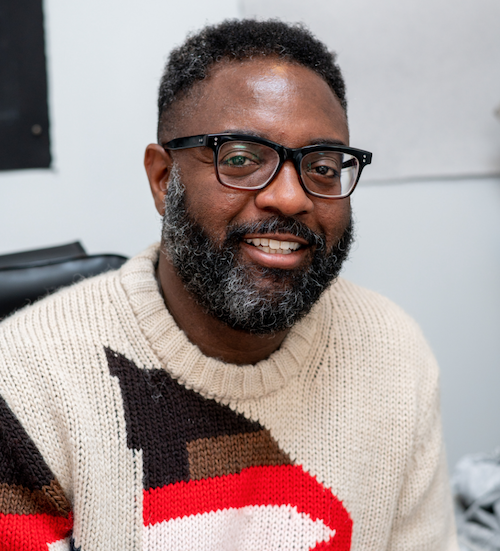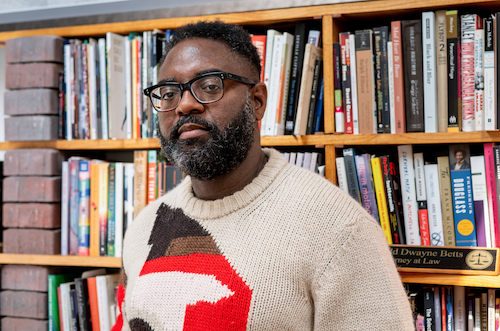Once-incarcerated lawyer poet is among winners of MacArthur 'genius grants'

Reginald Dwayne Betts. Photos from the MacArthur Foundation.
A lawyer and poet once imprisoned for a carjacking committed at age 16 is among 25 people who won the MacArthur Foundation fellowships, commonly known as "genius grants."
Reginald Dwayne Betts won approval for his Connecticut law license in 2017 after graduating from Yale Law School. He also published three poetry collections and a memoir after his release from prison, the Washington Post reports.
Betts also worked on the Obama administration’s Council on Juvenile Justice and Delinquency Prevention and launched a nonprofit, Freedom Reads, to build prison libraries. He is currently a PhD candidate in law at Yale Law School, according to a MacArthur Foundation biography.
Betts’ third poetry collection, Felon, focuses on the effects of incarceration, according to an online description of the book.
“I hope that what I can do for some other folks is show them that somebody cares about their existence,” Betts told the Washington Post.
Betts and the other winners will receive a no-strings-attached stipend of $625,000, to be paid over five years.
Another 2021 winner is Desmond Meade, a civil rights activist who is executive director of the Florida Rights Restoration Coalition, according to a MacArthur Foundation biography. A former prisoner, Meade now works to change laws that bar formerly incarcerated people from voting and participating fully in civic life.
Meade is a 2014 graduate of the Florida International University School of Law.
 Reginald Dwayne Betts.
Reginald Dwayne Betts.
Other winners include historian and social critic Ibram X. Kendi, who wrote How to Be an Antiracist; virologist Trevor Bedford, who created tools that helped track the evolution of COVID-19; art historian and curator Nicole Fleetwood, who exhibited artwork made by people in prison; and Marcella Alsan, a physician economist who studies how discrimination perpetuates racial disparities in health.
The Washington Post, the New York Times and NPR have coverage; the full list of MacArthur fellows is here.
McArthur fellows are chosen based on exceptional creativity, the promise for future advances, and the potential for the fellowship to facilitate more creative work.



